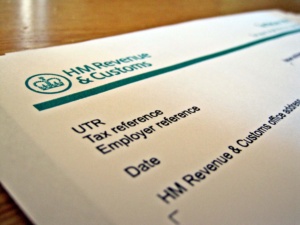Share and share alike
Data from the EU published at the time showed that on average digital companies paid effective tax rates of 9.50% compared to 23.20 for old economy businesses.

Faced with an escalating debt burden the British government continues to explore ways in which it can raise its revenue in 2021 and beyond, and although existing personal and corporate tax rates are likely to head higher in the next budget, the Chancellor of the Exchequer is also considering introducing new measures to increase his tax revenue.
Some of the measures under consideration are specifically aimed at the online economy which the UK treasury believes is distorting what it calls the value-added tax (VAT) base.
In a consultation document published this week, the treasury raised those concerns and said that “The government considers that the Sharing Economy not only creates challenges for VAT but impacts upon a range of different taxes”
The UK treasury feels that self-employed contractors who book their services through sharing platforms such as Uber or Taskrabbit, individually fall under the UK VAT registration threshold of £85,000, something that may not have happened if they were active in the “traditional” economy and which also potentially reduces the VAT liabilities of the platforms themselves.
The online economy has often been thought to enjoy tax advantages over traditional routes to market with online market places such as Amazon and eBay being compared to bricks and mortar retailers and their relative tax contributions. The online businesses, which are mainly multinational concerns appear to pay far less tax in individual jurisdictions than their old economy peers.
The UK is not the only country considering measures to improve its tax take from technology businesses. In September the EU Commissioner for economics and taxation was quoted as saying that Big Tech has to pay a “fair amount” of taxes in Europe and that the way that Big tech is taxed “ is a major problem” further that it was no longer possible “to accept the idea that those (tech) giants, the winners of the crisis, are not paying a fair amount of taxes in Europe”
Data from the EU published at the time showed that on average digital companies paid effective tax rates of 9.50% compared to 23.20 for old economy businesses.
However, the taxation of big tech in Europe was muddied somewhat when Apple got a €13.0 billion tax bill, due to the Irish Government, overturned in an appeal to the EU’s general court, in July this year.
The UK treasury moved against contractors, employed in the banking and fintech industry, last year by closing loopholes under IR 35, however, to some extent that backfired as banks moved to remove the contractors rather than take them on as full-time employees, as the treasury had hoped would be the case.
Both that and Apple’s victory in Ireland serve as a warning that attempts to change tax legislation, to meet specific goals, can often have unintended or unforeseen consequences. A level tax playing field for online and offline businesses is desirable, but we need consensus among lawmakers around the world before that can be achieved, and that’s not likely to be forthcoming in the current economic climate.









